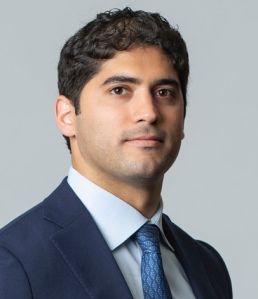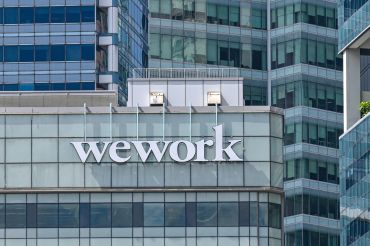With Obamacare dominating the headlines, doctors (yes, and dentists, too) have gotten more than their fair share of publicity lately. For those of us in commercial leasing, that also brings to mind the business of running a medical or dental practice and the need for suitable office space—a lease that properly addresses the med/dent professional’s special requirements. (How’s that for a segue!)
Here’s what makes medical/dental leasing so interesting (and complicated): you take all the regular leasing considerations and concerns and add several layers of nuanced complexity. For example, use (blood and hazardous waste and radiation issues); TI work (special build-outs for CT scanners); utilities (a dental office uses extraordinary amounts of water); subleasing (renting out offices to related medical specialist); renewal options (patients need and expect their doctors to stay in one place); and other areas that require special treatment.
To amplify, here’s a basic rundown of lease clauses that tenant’s reps should give special attention.
Term— Medical/dental practitioners simply do not relocate as often as the typical office tenant, the top two reasons being the time and expense associated with med/dent buildouts and secondly, the great importance of stability in office location for attracting, keeping and comforting patients.
Use—Try to draft broadly to provide for future expansion into related/ancillary fields: for example in representing a sports medicine specialist leave room in the use clause to bring in a nutritionist or a physical therapist. Obviously dentists will look for the right to have a hygienist and frequently “rent” chairs on a subcontract basis, but what about an on-premises lab (which, FYI can be a major profit center).
Exclusives—Aim to get an exclusive for tenant’s specialty practice. Of course, in a large medical building this may not be possible.
Tenant Improvements/Alterations/End of Term—The medical suite will have rather more hi-end, special buildouts which would be very expensive to remove/restore when the lease is over, so watch out for the typical end of term tenant restoration obligations.
Hours of Operation/HVAC/Access—Urgent care clinics are popping up offering 24/7 service and many more med/dent facilities are open during evening hours and on weekends. Most leases have limited landlord’s obligation to provide heat and AC during normal business hours. So plan ahead –perhaps incorporating a dedicated supplemental HVAC unit in landlord’s workletter. Practice pointers: if taking space in a shopping center be careful as to continuous operating hours requirements which LL may impose on the mall as a whole; review utilities as to adequacy and costs: direct meter available? After hours patient access issues?
Hazmats—Practices that utilize CT scanners and other equipment that produces radiation are not uncommon; most medical offices generate biomedical waste which must be properly disposed of; so unlike the general office lease (where we typically gloss over the garbage/environmental provisions) the hazmats clauses n the med/dent context must be carefully drafted to balance Landlord’s health/safety compliance concerns with tenant’s operational needs.
Right to Substitute Space—DELETE!—yes delete no mater how may ways Landlord may tell you the new space will be equivalent and that business will hardly suffer a hiccup.
ADA–Many patients require “handicapped” access to the doctor’s offices and so ADA is a primary concern. Tenant’s space will of course comply. What about ADA compliance for the building as a whole? In a small building access issues and the like may trigger a heated argument as to who is liable for costly compliance.
Access to the Premises–You can’t have the building super poking around the examining rooms during business hours, so limit any such entry to after business hours. Even for showing the space, try to limit access to the waiting area only, i.e. public spaces. Here we underscore the need to protect patient confidentiality.
Assignment and sublet—Here we focus on two major areas: the right to sublet/license offices/dental chairs to contract professionals and related service providers; second, for the solo and small group practitioner(s), the right to transfer the lease in connection with the sale of the practice. Under these scenarios no consent should be required. Also, as a practice pointer, make sure that the good doctor—who has become the good-guy guarantor –can get off the hook by substituting her successor. Recapture clauses are also hazardous to your client’s practice health.
Death or Disability—Typically for the solo practitioner, death or disability should give the estate the option to terminate and so relieve the surviving spouse and family of the lease burden. Typically a penalty must be paid to the landlord.
Options to Renew—Stability is the lifeblood of the practice, so in that respect options to renew are very important. The value of long term location has to do with more than bricks and mortar, rather with the amplified impact that moving represents for a med/dent office. So, in addition to the daunting prospect of a new, complicated buildout, we focus on the ineffable value of patients knowing that the good doctor will continue to provide services in the same comfortable surrounding to which they become accustomed over the years.
Practice Pointer: The so-called Stark Law –which prohibits kick-backs between referring physicians—may come into play where landlord is a physician group or hospital. The leasing team should become knowledgeable as to available safe harbors.
Jeff Margolis is founding principal of the Margolis Law Firm in New York City, where he specializes in dirt law—buying, selling and leasing. Follow Jeff via RSS jamargolis@newyorkleaselaw.com


